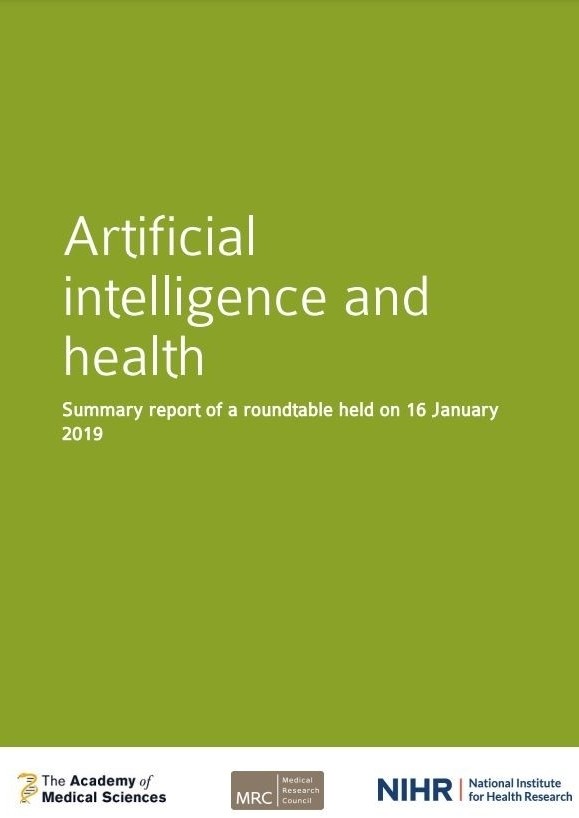Artificial intelligence (AI) is likely to have a ground-breaking impact on biomedical research and healthcare. However, for the UK to take full advantage of the potential of AI, we must change the current environment to allow better development and implementation of these new technologies.
A roundtable, held jointly between the Academy, the Medical Research Council and the National Institute for Health Research brought together experts from across the life sciences sectors to explore the challenges, opportunities and priorities for research and development of AI-driven technologies to ensure the benefits of AI in health can be fully achieved.
As AI continues to expand within the healthcare sector, the Academy’s roundtable provided a much-needed opportunity for members of the AI community, including experts from academia and industry, to come together with the NHS and funding bodies in an intimate, solution-focussed setting to identify priorities that will lead to future advantages for patients and the public.
One such priority calls on research funders to work with the wider UK community – including academia, industry, the NHS, public and private funders, regulators, patients and the public – to set out and deliver key research areas for AI and health. The meeting provided an important catalytic platform, acting as a starting point for innovative conversations that could lead to future collaborative work. If the UK is to remain a world-leader in AI health research, the sector must now take these initial discussions forward with this wider group of stakeholders.
Professor Jacqueline Hunter CBE FMedSci, Chair of the joint roundtable on ‘Artificial intelligence and health’, said:
“The Academy’s joint roundtable on 'AI and health’ was a timely meeting that brought together experts from academia, industry, the NHS and funding bodies.
“Bringing together experts who wouldn’t usually get the chance to meet professionally allowed us to explore the vast scope of what the future could hold for AI-driven technologies in healthcare.
“There is no doubt that AI has the potential to have a substantial impact on biomedical research and the healthcare system, changing the way patients are managed and treated. However, we must act now to create the best environment for the development of these potentially life-changing and innovative technologies. Without cross-sector collaboration and knowledge sharing between disciplines, the UK will not continue to be a world leader in AI health research.”
Healthcare benefits could be achieved in the shorter term, as identified at the meeting, with greater user engagement, cross-sector collaboration, and support for data stewardship and data infrastructure to enable the development of these new technologies. Failing to create a suitable environment for development and delivery of AI-driven technologies risks not realising the full benefits that AI can offer to healthcare.
The Academy is pleased to launch the report of its joint roundtable on ‘Artificial intelligence and health’ held on 16 January 2019 and chaired by Professor Jacqueline Hunter CBE FMedSci. The full report is available to download on the right hand side of this page.
In a follow up to the roundtable, the Academy also engaged in a joint workshop on ‘Artificial intelligence in health and care’ in partnership with the Royal Society. The workshop, held on 29 March 2019, explored where and how AI technologies can help address key clinical challenges.
Further information on the workshop is available on our dedicated policy project page, and the full meeting report is available to download on the right hand side of this page.
